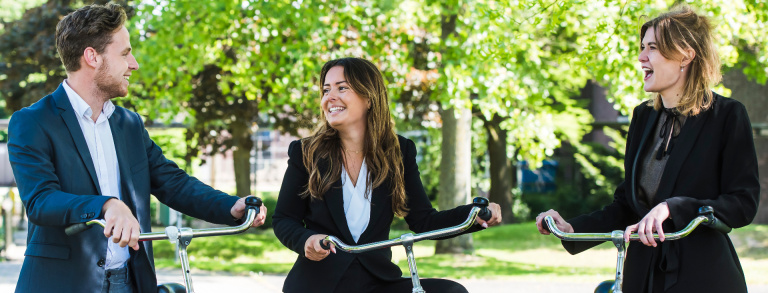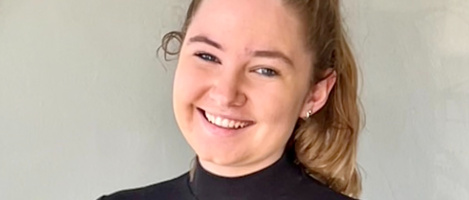
The biology of good performance
By Dr. Jérôme Gijselaers, lecturer HMSM
“NEVER snooze! ‘You snooze, you lose’, the phrase tells us and this is true."
“Mens sana in corpore sano”, a healthy body leads to a healthy mind. Ancient philosophers such as Plato already held this belief. ~Eat balanced, sleep well, and be physically active~. This lifestyle will take care of a healthy body and a healthy brain. But does it also translate into better performance?

Biological lifestyle factors
Sleep, physical activity, and nutrition are all factors that influence our bodies biologically and are heavily connected to lifestyle. Obviously, we all know what a poor night of sleep does to us, or what happens when you sit down all day long. Nonetheless it seems that we do not always realize how much our lifestyle can contribute to our performance. Learning , but also our mental well-being is strongly influenced by our lifestyle.
Sleep
One of the most important factors in our lifestyle is sleep. Especially in late adolescents – people between 20 and 25 years old, so students of the HMSM – sleep is often deprived. Sleep deprivation leads to poor mental performance during the day, may lead to mood problems and in the long run can lead to depression. So what to do about it? First of all, NEVER snooze! ‘You snooze, you lose’, the phrase also tells us and this is true. Snoozing leads to fragmentation of your sleep. It is best to get up at the exact same time every day and to go to bed once you are tired. Another important factor is sleep duration. Often adolescents sleep to little, especially during the week. This has multiple reasons, but important is what you can do about it. Make sure you do not use bright lightning in the evening, especially from devices such as your phone, laptop, and tablet. In addition, alcohol leads to poorer sleep quality. Although you might fall asleep easily with a couple of drinks, the second half of the night is heavily impaired and thus also your performance suffers.
Physical activity
Our body is built to move around, literally. Although we might be aware of this, many of us sit down too much and move too little. This leads to poorer performance of our brain. The two most important lessons from research when it comes to health and performance are that you should be active and you should not sit too much. Basically, this means that light physical activity is enough to stay healthy, so no heavy exercising is necessary per se for your health, although it provides additional benefit. Long term sitting should be avoided. It is best to get up at least every half hour and to substitute sitting with light physical activity such as standing and walking.
Nutrition
The third and last factor is nutrition. Many things in nutrition are not known yet, which is why it is so difficult to give proper advice. Nonetheless, some things are very clear, and should be common knowledge. Basically, one needs all three macronutrients, which are fats, carbohydrates, and
proteins. Cutting one of these out of your diet is usually not recommendable unless you are under supervision of a licensed professional. In addition, especially students often skip breakfast, which is not a good habit. After a long time of not eating at all (i.e., your nights rest and all hours before), your body needs fuel to work, and especially your brain. Research shows that students who eat a balanced breakfast perform better in school.
Tune up your lifestyle
Do you feel like tuning up your lifestyle? Make sure to check the following references:
- Check my lecture on this matter (only in Dutch!): https://universiteitvannederland.nl/college/wat-moet-je-de-dag-voor-je-tentamen-doen-behalve-leren/
- Sleep: https://www.hersenstichting.nl/dit-doen-wij/voorlichting/gezonde-hersenen/slaap/
- Physical activity: https://www.allesoversport.nl/artikel/bewegen-houdt-je-hersens-in-conditie/
- Exercises at home: https://www.darebee.com/
- Nutrition: https://www.hersenstichting.nl/dit-doen-wij/voorlichting/gezonde-hersenen/voeding/
About Jérôme
In February 2020, Jérôme started working for our Hotel Management School Maastricht as Lecturer Research Skills and Statistics. He acquired a Master degree in Neuropsychology, has a PhD degree in educational science and biopsychology, and has been working on research involving biological lifestyle factors over the last 8 years. He is also a licensed coach and supervises students in the final year of our Bachelor. He loves Crossfit, biking (race and MTB), cooking, and seeking out nature.


